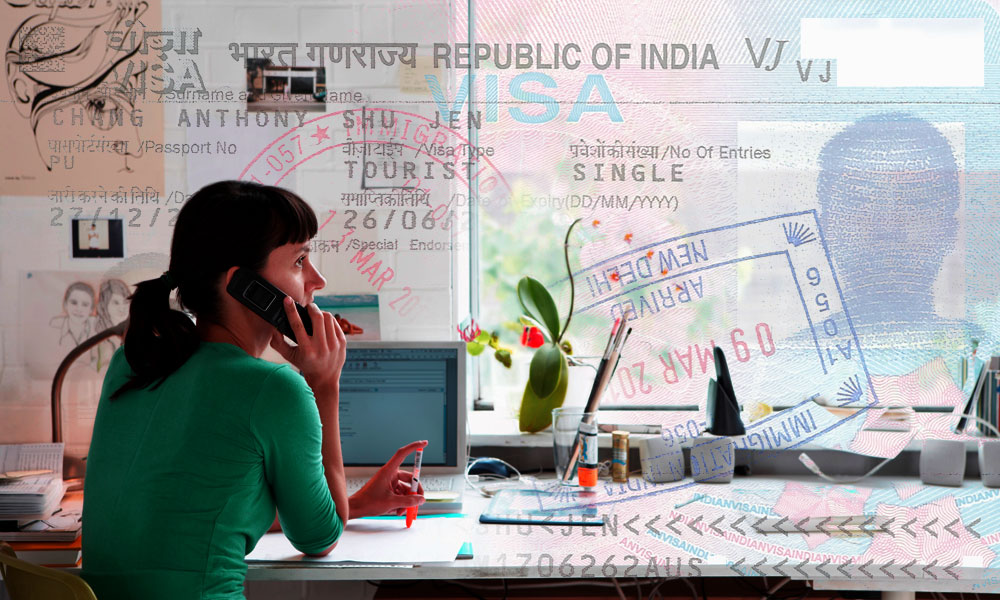Introduction to the Five-Year Indian Visa
If you’re planning to visit India frequently or stay for extended periods, the Five-Year Indian Visa could be your ticket to a hassle-free experience. But what exactly is this visa, and why might it be the right choice for you? Let’s dive into the details. FIVE YEAR INDIAN VISA
What is a Five-Year Indian Visa?
The Five-Year Indian Visa is a long-term visa that allows travelers to stay in India for up to five years from the date of issue. Unlike short-term visas, which might only cover a few months, this visa offers greater flexibility and convenience for those who need more time in the country.
Benefits of a Five-Year Indian Visa
Why opt for a Five-Year Indian Visa? For starters, it eliminates the need for frequent reapplications. With this visa, you won’t have to worry about renewing your visa every few months. It also simplifies travel plans, allowing for multiple entries into India without additional paperwork. Plus, it’s ideal for frequent business travelers or long-term tourists.
Eligibility Criteria for a Five-Year Indian Visa
General Eligibility Requirements
To qualify for a Five-Year Indian Visa, applicants generally need to meet several criteria. These include having a valid passport with at least six months of validity remaining, demonstrating sufficient financial means to support oneself during the stay, and having no criminal record. URGENT EMERGENCY INDIAN VISA
Specific Criteria for Different Nationalities
Different countries might have specific requirements or additional documentation. For instance, U.S. citizens might need to provide additional proof of ties to their home country, while citizens from certain countries may need to show a more detailed itinerary.
Application Process for a Five-Year Indian Visa
Step-by-Step Application Guide
Applying for a Five-Year Indian Visa involves several steps. First, you need to complete the online application form available on the Indian government’s visa website. Once the form is submitted, you’ll need to schedule an appointment at an Indian consulate or embassy. Finally, submit your documents and pay the visa fee.
Required Documents
Typical documents required include your passport, a completed application form, passport-sized photographs, proof of financial stability, and possibly a letter of invitation if visiting for business or family reasons.
How to Fill Out the Application Form
Filling out the visa application form can be straightforward if you follow the instructions carefully. Ensure all information is accurate and matches your supporting documents to avoid delays or rejections.
Processing Time and Fees
Typical Processing Time
The processing time for a Five-Year Indian Visa can vary, but it generally takes between 2 to 4 weeks. It’s wise to apply well in advance of your planned travel dates to account for any unforeseen delays.
Fee Structure and Payment Methods
Visa fees vary depending on your nationality and the type of visa you’re applying for. Typically, payment can be made through online portals, at consulates, or through authorized visa agencies.
Five-Year Indian Visa vs. Other Types of Indian Visas
Short-Term vs. Long-Term Visas
Short-term visas are usually valid for a few months, while long-term visas like the five-year option provide extended stay options. The latter is more suitable for frequent travelers or those with long-term plans in India.
Tourist vs. Business Visas
A Five-Year Indian Visa can be issued for various purposes, including tourism and business. Each type of visa has specific requirements and conditions, so choose the one that best fits your needs.
Tips for a Smooth Visa Application Experience
Common Mistakes to Avoid
One of the common mistakes applicants make is submitting incomplete or incorrect information. Double-check all details before submission. Another mistake is not providing the required supporting documents, which can delay processing.
Best Practices for a Successful Application
To ensure a smooth application process, fill out the application form carefully, gather all necessary documents, and follow the guidelines provided by the Indian consulate or embassy. Applying well in advance of your travel date is also crucial.
What to Do if Your Visa Application is Denied
Understanding Common Reasons for Denial
Visa applications can be denied for various reasons, including incomplete documentation, discrepancies in the application, or failure to meet eligibility requirements. Understanding these reasons can help you address issues in future applications.
How to Appeal a Visa Denial
If your application is denied, you can appeal the decision by addressing the specific reasons provided in the denial notice. Submit any additional documents or clarifications requested and follow the appeal process outlined by the consulate or embassy.
Conclusion
The Five-Year Indian Visa offers a fantastic option for those who wish to spend extended periods in India, whether for travel, business, or family reasons. By understanding the eligibility criteria, application process, and tips for success, you can navigate the visa application with confidence.
FAQs
Can I extend my five-year Indian visa?
The Five-Year Indian Visa is generally not extendable. You would need to apply for a new visa if you wish to stay beyond the initial five years.
How long can I stay in India with this visa?
You can stay in India for the duration specified in your visa, up to five years. The exact length of stay per visit might be limited by the visa type.
What if I lose my five-year Indian visa?
If you lose your visa, you should report it to the nearest Indian embassy or consulate immediately. They will guide you through the process of obtaining a replacement.
Can I work in India with a five-year visa?
Whether you can work in India depends on the type of visa issued. If it’s a business or employment visa, working is permitted; otherwise, a separate work visa is required.
Is there a limit to how many times I can apply for this visa?
There is no set limit on the number of times you can apply for a Five-Year Indian Visa. However, frequent reapplications may raise questions and require additional justification.


